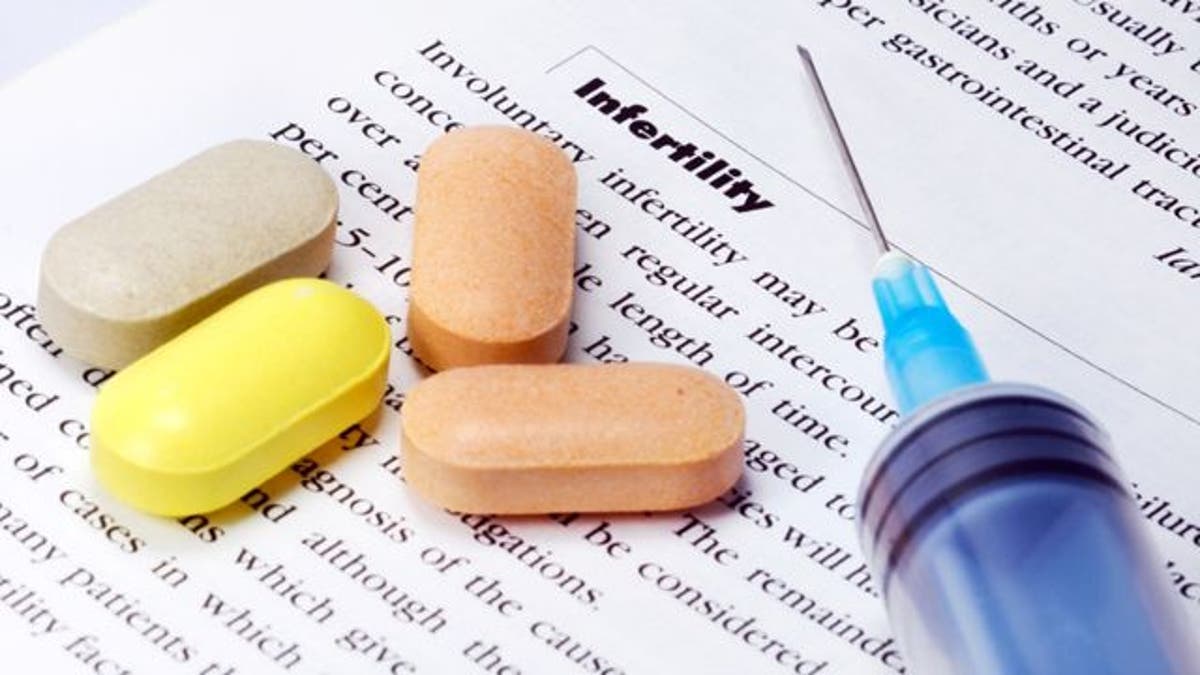
Approximately 1 in 8 couples struggle with infertility and the most obvious sign is not being able to get pregnant despite having unprotected sex for 6 months or a year, depending on your age.
Here are nine other important symptoms to pay attention to— they could explain why you can’t conceive.
1. Irregular or absent periods
A telltale sign that you’re infertile is if your periods are irregular or non-existent. In order to have regular periods, the pituitary gland and the hypothalamus in the brain, along with the ovaries, must work together. But when they don’t, it could mean there’s a hormonal imbalance.
“Irregular periods or absent periods represent the fact that at some level an issue with regularly producing an egg and that can be a clear cause of infertility,” said Dr. Jason M. Franasiak, a board-certified OB-GYN and a board-certified technical supervisor in embryology and andrology at Reproductive Medicine Associates of New Jersey in Marlton.
If your cycle has dropped from around 28 days down to 21 days, or your periods have stopped altogether, it could mean that you’re approaching menopause. In some women who have a genetic predisposition or an autoimmune disease, menopause can happen as early as their 20s, said Dr. Brian Levine, a board-certified OB-GYN and fertility specialist, and the New York practice director for the Colorado Center for Reproductive Medicine in New York City.
2. Heavy or painful periods
Between 5 and 10 percent of women who are infertile have heavy periods, which could be due to uterine fibroids. Likewise, painful periods might mean you have endometriosis, a condition that has also been associated with infertility.
3. Vision problems and clumsiness
If your peripheral vision doesn’t seem as strong as it used to be, you’re suddenly clumsy and your periods are irregular, it could a sign that you have a prolactinoma, or a non-cancerous tumor on the pituitary gland that can affect your fertility, Levine said.
The pituitary gland makes follicle-stimulating hormone (FSH) which regulates the ovaries and egg production. Yet since the pituitary gland sits directly on the optic chiasm— the point in the brain where the optic nerves in the eyes cross over— the prolactinoma can push down on the chaism and push the cells that make FSH together, which in turn affects your vision, Levine said.
If your doctor finds that your prolactin level is elevated, he will order an MRI of your head to see how big the tumor is. A small prolactinoma can be treated with medication while larger ones will require surgery to remove it. After treatment, your periods should return to normal and improve your chances of getting pregnant.
4. Excess, unwanted hair
If you have excess hair on your face or on other parts of your body, it might mean that you have polycystic ovary syndrome (PCOS), a hormonal imbalance and a common cause of infertility. PCOS causes the ovaries to make more androgens, or hormones, than normal and create a disconnect between the way the brain talks to the ovaries, Franasiak said. Other symptoms of PCOS include irregular periods, weight gain and acne.
5. Loss of libido and sexual function
Studies show that for approximately 40 percent of couples who struggle with infertility, the man is the primary cause or one of the causes.
Men who have loss of libido, have trouble getting or keeping an erection, problems with ejaculation or pain, swelling or a lump in the testicles could mean there’s a problem with fertility.
6. Weight gain
Forty-five percent of women are overweight or obese before they get pregnant, according to the Centers for Disease Control and Prevention (CDC) and carrying extra pounds can make it hard to get pregnant.
Yet if you’re underweight, over-exercise or are athletic, you could have irregular periods, which can affect your infertility too. Talk to your doctor or a nutritionist who can help you come up with a plan to get to a healthy weight.
7. Painful sex
If sex is painful, extra lubrication might do the trick but vaginal dryness is usually due to a lack of estrogen, a sign of early menopause and an obstacle to getting pregnant.
8. Thinning hair or hair loss
If your hair seems thinner or more is falling out, it could mean you have thyroid dysfunction which can affect ovulation. In fact, a study in The Obstetrician & Gynaecologist found that 2.3 percent of women with infertility also had an overactive thyroid. Some additional symptoms to pay attention to include anxiety, weight loss, rapid heartbeat and fatigue.
9. Vitamin D deficiency
According to a report by the CDC, 41.6 percent of people are deficient in vitamin D and it may be associated with infertility. Although some studies show sufficient levels of vitamin D can help female and male fertility, experts agree there’s not enough data to show that a deficiency causes infertility.
Nevertheless, vitamin D is important for things like strong bones, immunity and heart health, so ask your doctor if you should take a supplement.








































